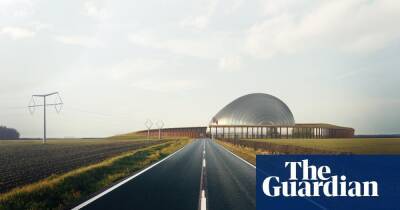Britain was promised a bold and visionary energy plan. But we’ve been sold a dud
These are unsettling times. As scientists have issued ringing warnings about the dangers we face from continued fossil fuel burning, an energy crisis has been triggered by the Russian invasion of Ukraine. This unprecedented double threat clearly requires an urgent response, which the government supplied last week in the form of its energy security strategy. And it includes some eye-catching headlines, particularly on the expansion of nuclear power.
But does it deliver what it says on the tin?
The answer is straightforward. It fails. At the heart of most definitions of energy security is reliability of supplies for households and businesses. This is usually complemented by a focus on affordability. It is no good if energy is available, but the price is too high for businesses to function or households to keep warm.
The new strategy does very little to deal with the immediate impacts of high fossil fuel prices. While the government has announced some help for households via loans and a council tax reduction, this is simply not enough. The energy price cap has already risen to almost £2,000 a year and a further rise is due in the autumn. This comes on top of a wider cost of living crisis and high levels of inflation.
While more money to help people pay their bills is needed, this must be accompanied by action to prevent these acute impacts in future. This means making homes more efficient and switching away from fossil fuels for heating. It is nearly a decade since effective policies for home energy efficiency were cancelled and replaced with new approaches, such as the green deal, which have failed spectacularly. As a result, the steady improvements in efficiency and financial benefits to households have virtually stopped. A
Read more on theguardian.com




















